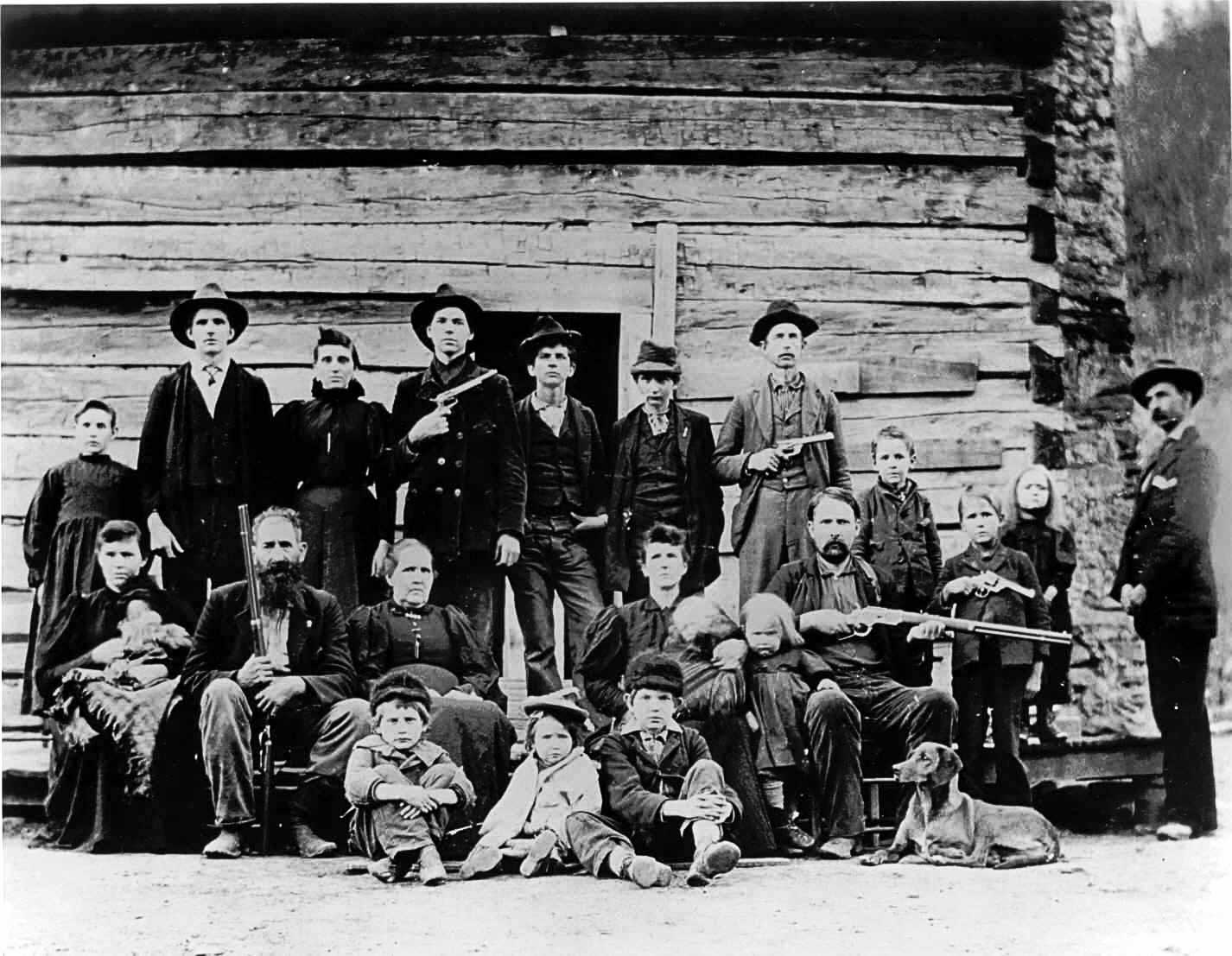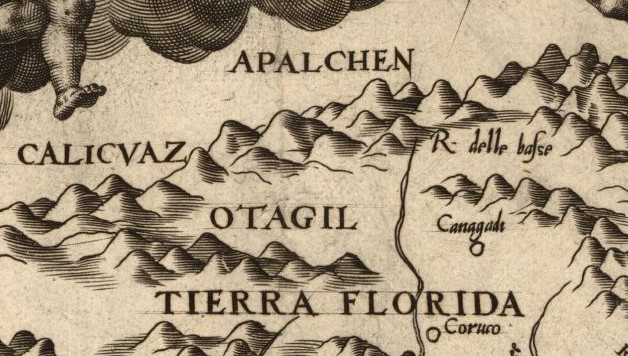|
Hillbillies
Hillbilly is a term (often derogatory A pejorative or slur is a word or grammatical form expressing a negative or a disrespectful connotation, a low opinion, or a lack of respect toward someone or something. It is also used to express criticism, hostility, or disregard. Sometimes, a ...) for people who dwell in rural area, rural, mountainous areas in the United States, primarily in southern Appalachia and the Ozarks. The term was later used to refer to people from other rural and mountainous areas west of the Mississippi river, too, particularly those of the Rocky Mountains and near the Rio Grande. The first known instances of "hillbilly" in print were in ''The Railroad Trainmen's Journal'' (vol. ix, July 1892), an 1899 photograph of men and women in West Virginia labeled "Camp Hillbilly", and a 1900 ''New York Journal'' article containing the definition: "a Hill-Billie is a free and untrammeled white citizen of Alabama, who lives in the hills, has no means to speak of, dress ... [...More Info...] [...Related Items...] OR: [Wikipedia] [Google] [Baidu] |
Appalachia
Appalachia () is a cultural region in the Eastern United States that stretches from the Southern Tier of New York State to northern Alabama and Georgia. While the Appalachian Mountains stretch from Belle Isle in Newfoundland and Labrador, Canada, to Cheaha Mountain in Alabama, ''Appalachia'' typically refers only to the cultural region of the central and southern portions of the range, from the Catskill Mountains of New York southwest to the Blue Ridge Mountains which run southwest from southern Pennsylvania to northern Georgia, and the Great Smoky Mountains of Tennessee and North Carolina. In 2020, the region was home to an estimated 26.1 million people, of which roughly 80% are white. Since its recognition as a distinctive region in the late 19th century, Appalachia has been a source of enduring myths and distortions regarding the isolation, temperament, and behavior of its inhabitants. Early 20th century writers often engaged in yellow journalism focused on sensational ... [...More Info...] [...Related Items...] OR: [Wikipedia] [Google] [Baidu] |
Presbyterians
Presbyterianism is a part of the Reformed tradition within Protestantism that broke from the Roman Catholic Church in Scotland by John Knox, who was a priest at St. Giles Cathedral (Church of Scotland). Presbyterian churches derive their name from the presbyterian form of church government by representative assemblies of elders. Many Reformed churches are organised this way, but the word ''Presbyterian'', when capitalized, is often applied to churches that trace their roots to the Church of Scotland or to English Dissenter groups that formed during the English Civil War. Presbyterian theology typically emphasizes the sovereignty of God, the authority of the Scriptures, and the necessity of grace through faith in Christ. Presbyterian church government was ensured in Scotland by the Acts of Union in 1707, which created the Kingdom of Great Britain. In fact, most Presbyterians found in England can trace a Scottish connection, and the Presbyterian denomination was also taken ... [...More Info...] [...Related Items...] OR: [Wikipedia] [Google] [Baidu] |
Protestantism
Protestantism is a branch of Christianity that follows the theological tenets of the Protestant Reformation, a movement that began seeking to reform the Catholic Church from within in the 16th century against what its followers perceived to be growing errors, abuses, and discrepancies within it. Protestantism emphasizes the Christian believer's justification by God in faith alone (') rather than by a combination of faith with good works as in Catholicism; the teaching that salvation comes by divine grace or "unmerited favor" only ('); the priesthood of all faithful believers in the Church; and the ''sola scriptura'' ("scripture alone") that posits the Bible as the sole infallible source of authority for Christian faith and practice. Most Protestants, with the exception of Anglo-Papalism, reject the Catholic doctrine of papal supremacy, but disagree among themselves regarding the number of sacraments, the real presence of Christ in the Eucharist, and matters of ecclesiast ... [...More Info...] [...Related Items...] OR: [Wikipedia] [Google] [Baidu] |
Ireland
Ireland ( ; ga, Éire ; Ulster Scots dialect, Ulster-Scots: ) is an island in the Atlantic Ocean, North Atlantic Ocean, in Northwestern Europe, north-western Europe. It is separated from Great Britain to its east by the North Channel (Great Britain and Ireland), North Channel, the Irish Sea, and St George's Channel. Ireland is the List of islands of the British Isles, second-largest island of the British Isles, the List of European islands by area, third-largest in Europe, and the List of islands by area, twentieth-largest on Earth. Geopolitically, Ireland is divided between the Republic of Ireland (officially Names of the Irish state, named Ireland), which covers five-sixths of the island, and Northern Ireland, which is part of the United Kingdom. As of 2022, the Irish population analysis, population of the entire island is just over 7 million, with 5.1 million living in the Republic of Ireland and 1.9 million in Northern Ireland, ranking it the List of European islan ... [...More Info...] [...Related Items...] OR: [Wikipedia] [Google] [Baidu] |
Appalachian Mountains
The Appalachian Mountains, often called the Appalachians, (french: Appalaches), are a system of mountains in eastern to northeastern North America. The Appalachians first formed roughly 480 million years ago during the Ordovician Period. They once reached elevations similar to those of the Alps and the Rocky Mountains before experiencing natural erosion. The Appalachian chain is a barrier to east–west travel, as it forms a series of alternating ridgelines and valleys oriented in opposition to most highways and railroads running east–west. Definitions vary on the precise boundaries of the Appalachians. The United States Geological Survey (USGS) defines the ''Appalachian Highlands'' physiographic division as consisting of 13 provinces: the Atlantic Coast Uplands, Eastern Newfoundland Atlantic, Maritime Acadian Highlands, Maritime Plain, Notre Dame and Mégantic Mountains, Western Newfoundland Mountains, Piedmont, Blue Ridge, Valley and Ridge, St. Lawrence Valley, Appalac ... [...More Info...] [...Related Items...] OR: [Wikipedia] [Google] [Baidu] |
Ulster
Ulster (; ga, Ulaidh or ''Cúige Uladh'' ; sco, label= Ulster Scots, Ulstèr or ''Ulster'') is one of the four traditional Irish provinces. It is made up of nine counties: six of these constitute Northern Ireland (a part of the United Kingdom); the remaining three are in the Republic of Ireland. It is the second-largest (after Munster) and second-most populous (after Leinster) of Ireland's four traditional provinces, with Belfast being its biggest city. Unlike the other provinces, Ulster has a high percentage of Protestants, making up almost half of its population. English is the main language and Ulster English the main dialect. A minority also speak Irish, and there are Gaeltachtaí (Irish-speaking regions) in southern County Londonderry, the Gaeltacht Quarter, Belfast, and in County Donegal; collectively, these three regions are home to a quarter of the total Gaeltacht population of Ireland. Ulster-Scots is also spoken. Lough Neagh, in the east, is the largest lake i ... [...More Info...] [...Related Items...] OR: [Wikipedia] [Google] [Baidu] |
BBC News
BBC News is an operational business division of the British Broadcasting Corporation (BBC) responsible for the gathering and broadcasting of news and current affairs in the UK and around the world. The department is the world's largest broadcast news organisation and generates about 120 hours of radio and television output each day, as well as online news coverage. The service maintains 50 foreign news bureaus with more than 250 correspondents around the world. Deborah Turness has been the CEO of news and current affairs since September 2022. In 2019, it was reported in an Ofcom report that the BBC spent £136m on news during the period April 2018 to March 2019. BBC News' domestic, global and online news divisions are housed within the largest live newsroom in Europe, in Broadcasting House in central London. Parliamentary coverage is produced and broadcast from studios in London. Through BBC English Regions, the BBC also has regional centres across England and national news c ... [...More Info...] [...Related Items...] OR: [Wikipedia] [Google] [Baidu] |
Williamite
A Williamite was a follower of King William III of England (r. 1689–1702) who deposed King James II and VII in the Glorious Revolution. William, the Stadtholder of the Dutch Republic, replaced James with the support of English Whigs. One of William's aims was to ensure England's entry into his League of Augsburg against France in the Nine Years' War. For Williamites in England, Scotland and Ireland, William was seen as the guarantor of civil and religious liberty and the Protestant monarchy against Catholic absolutism. The term "Williamite" is also commonly used to refer to William's multi-national army in Ireland during the Williamite War in Ireland, 1689–1691. In Ireland itself, William was primarily supported by Protestants and opposed by the native and Anglo-Irish Catholic Jacobites who supported James. Once James II had come to the throne in 1685, he had his viceroy Richard Talbot, Earl of Tyrconnell replace Protestants with Catholics in the government. The Royal ... [...More Info...] [...Related Items...] OR: [Wikipedia] [Google] [Baidu] |
Williamite War In Ireland
The Williamite War in Ireland (1688–1691; ga, Cogadh an Dá Rí, "war of the two kings"), was a conflict between Jacobite supporters of deposed monarch James II and Williamite supporters of his successor, William III. It is also called the Jacobite War in Ireland, Williamite Conquest of Ireland, or the Williamite–Jacobite War in Ireland. The proximate cause of the war was the Glorious Revolution of 1688, in which James, a Catholic, was overthrown as king of England, Ireland and Scotland and replaced by his Protestant daughter Mary and nephew and son-in-law William, ruling as joint monarchs. James's supporters initially retained control of Ireland, which he hoped to use as a base for a campaign to reclaim all three kingdoms. The conflict in Ireland also involved long-standing domestic issues of land ownership, religion and civic rights; most Irish Catholics supported James in the hope he would address their grievances. A small number of English and Scottish Catholics, an ... [...More Info...] [...Related Items...] OR: [Wikipedia] [Google] [Baidu] |
Protestant
Protestantism is a Christian denomination, branch of Christianity that follows the theological tenets of the Reformation, Protestant Reformation, a movement that began seeking to reform the Catholic Church from within in the 16th century against what its followers perceived to be growing Criticism of the Catholic Church, errors, abuses, and discrepancies within it. Protestantism emphasizes the Christian believer's justification by God in faith alone (') rather than by a combination of faith with good works as in Catholicism; the teaching that Salvation in Christianity, salvation comes by Grace in Christianity, divine grace or "unmerited favor" only ('); the Universal priesthood, priesthood of all faithful believers in the Church; and the ''sola scriptura'' ("scripture alone") that posits the Bible as the sole infallible source of authority for Christian faith and practice. Most Protestants, with the exception of Anglo-Papalism, reject the Catholic doctrine of papal supremacy, ... [...More Info...] [...Related Items...] OR: [Wikipedia] [Google] [Baidu] |
William III Of England
William III (William Henry; ; 4 November 16508 March 1702), also widely known as William of Orange, was the sovereign Prince of Orange from birth, Stadtholder of County of Holland, Holland, County of Zeeland, Zeeland, Lordship of Utrecht, Utrecht, Guelders, and Lordship of Overijssel, Overijssel in the Dutch Republic from the 1670s, and King of England, Monarchy of Ireland, Ireland, and List of Scottish monarchs, Scotland from 1689 until his death in 1702. As King of Scotland, he is known as William II. He is sometimes informally known as "King Billy" in Ireland and Scotland. His victory at the Battle of the Boyne in 1690 is The Twelfth, commemorated by Unionism in the United Kingdom, Unionists, who display Orange Order, orange colours in his honour. He ruled Britain alongside his wife and cousin, Queen Mary II, and popular histories usually refer to their reign as that of "William and Mary". William was the only child of William II, Prince of Orange, and Mary, Princess Royal an ... [...More Info...] [...Related Items...] OR: [Wikipedia] [Google] [Baidu] |








